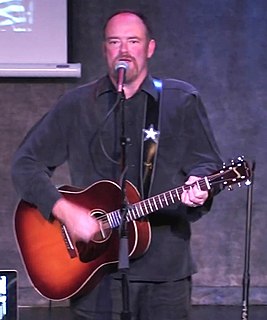A Quote by Don DeLillo
In my experience, writing a novel tends to create its own structure, its own demands, its own language, its own ending. So for much of the period in which I'm writing, I'm waiting to understand what's going to happen next, and how and where it's going to happen. In some cases, fairly early in the process, I do know how a book will end. But most of the time, not at all, and in this particular case, many questions are still unanswered, even though I've been working for months.
Related Quotes
I have an argument that to master any field, it's simple: it's a function of time. How much you devote yourself to the process, how much experience you get, how much you're willing to expand your limits, how willing you are to develop your own style. If you're willing to put 10,000 hours, something amazing is going to happen.
To me, music and songwriting is... part of the intriguing thing is the creative process; you know, the creative thought process. Relying on that... there is some sort of inspiration there and you can't always put your finger on where it comes from. So, it's always been important for me to have my own thing and, even though I'm inspired by and influenced by many different musicians and styles of music, I was very determined early on to have my own thing. So when I sit down to write I don't necessarily have a particular narrative or message in mind. I'm interested in language and in words.
Let's say I was like, "I'm going to write a book this year," which I'm not. Let's just say that was it. Then it would be for the joy of writing it. It wouldn't be like, "And it's going to be No. 1 and I'm going to get rich and go on a book tour and own a library." I don't know the difference between doing what I normally do and making a resolution. And if it doesn't happen, then I'm going to be miserable.
When I left Africa in 1966 it seemed to me to be a place that was developing, going in a particular direction, and I don't think that is the case now. And it's a place where people still kid themselves - you know, in a few years this will happen or that will happen. Well, it's not going to happen. It's never going to happen.
Many writers, especially male ones, have told us that it is the decease of the father which opens the prospect of one's own end, and affords an unobstructed view of the undug but awaiting grave that says 'you're next.' Unfilial as this may seem, that was not at all so in my own case. It was only when I watched Alexander [my own son] being born that I knew at once that my own funeral director had very suddenly, but quite unmistakably, stepped onto the stage. I was surprised by how calmly I took this, but also by how reluctant I was to mention it to my male contemporaries.
Let's say that history is what happened. The record of what happened is how each individual happens to see those events. They've already been ?ltered. When the historian or biographer takes over, history is no longer exactly what happened, because there has been a process of selection going on; it's impossible to write about anyone, any event, in any period of time, without in some way imposing, even unconsciously, your own standards, your own values.
The Bauls say, "Don't try to force anything." Let life be a deep let-go. See God opening millions of flowers every day without forcing the buds, waiting, never in a hurry, giving their time to them. The Bauls say, "Everything happens at its right time, everything happens in its own season. Wait, don't be impatient, don't be in a hurry. All hurry is greed, and all hurry is a subtle fight." That which is going to happen will happen. Whenever it is going to happen it will happen; you need not fight existence. You can surrender, you can trust.





































